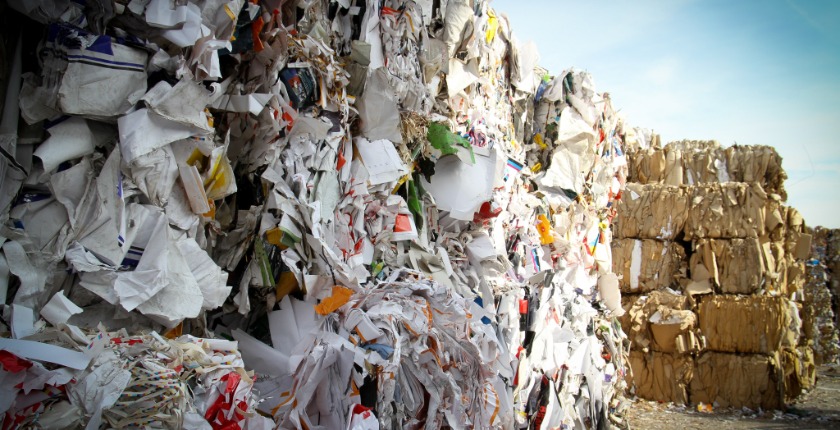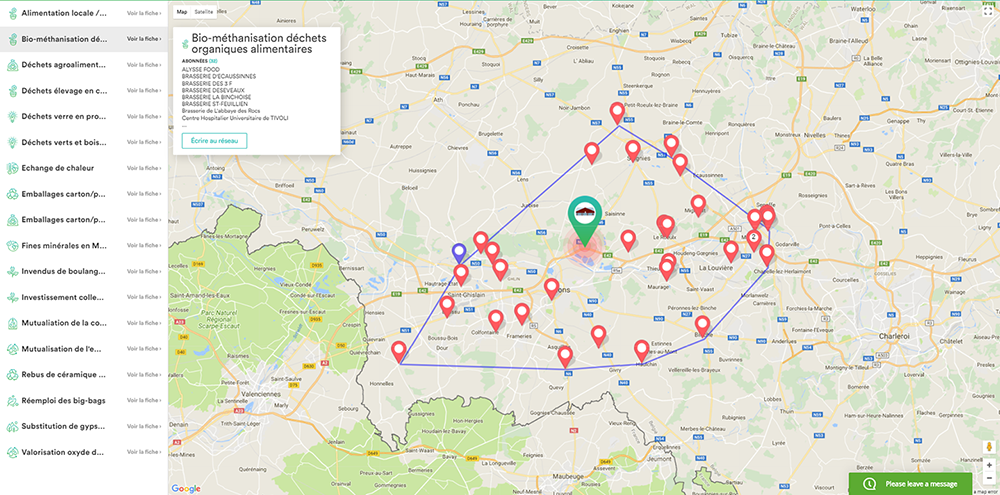1000 Solutions - February 1, 2019
iNex Circular, the first circular economy platform for companies


Written by Tristan Lebleu
We produce. We consume. We waste. This linear model of production and consumption has prevailed throughout the 19th and 20th century but has proven to be highly unsustainable. A new model is now emerging to produce goods in a sustainable manner: known as the circular economy, it is described as “a framework for an economy that is restorative and regenerative by design” by the Ellen MacArthur Foundation, an organisation dedicated to accelerating the transition to this new model.
Industries have a major role to play in this paradigm shift. Indeed, they use large quantities of raw materials and produce vast amount of wastes, such as wood, organic materials, chemicals, metals, or energy. In Europe, industrial waste represents 80% of the total amount of waste produced. According to the EPA’s Guide for Industrial Waste Management, approximately 7.6 billion tons of industrial solid waste are generated in the US alone each year. Most of these wasted materials could be used by other companies.
A couple of years ago, Olivier Gambari decided to tackle the issue by creating the first web platform dedicated to circular economy for companies: iNex Circular. “A lot of people talk about circular economy but without a precise mapping of all waste generated, it’s only talk. Through iNex Circular, we have created the European leader in the detection of waste deposits” explains Olivier.

The strength of iNex’s tool resides in their ability to instantly match waste producers and raw material users in a specific region thanks to information collected through open databases. "Thanks to our web tool, which automatically retrieves the available data on companies, we can do in three clicks what used to take three to six months by an audit firm. In addition, they cannot analyze as many companies at once" said Olivier in an interview with Courrier Picard.
Thanks to iNex’s knowledge on substitution of materials, the platform knows exactly which raw element can be replaced by what kind of waste, and can therefore match companies in the region, as long as the exchange has an economic and an environmental benefit. “We systematically analyse the economic viability of each material exchange for the “givers” and the “takers”. Each party needs to have an interest in the process for it to be a success”.
The match-making platform, which has aggregated data on wastes generated by over 2000 companies, is also a powerful decision-making tool for industrials on locating their installations. “We are now contacted by companies who are looking to install their factories close to sources of waste that they can use as raw material”.
Currently iNex Circular works mainly with local governments eager to develop synergies between companies in their region, and currently works on circular economy projects in France, Spain and Belgium. They plan on an intensive growth in the coming years, as many industrials are looking into new waste management processes. “Our 5 year plan is to recycle 1’000’000t of wastes” says Olivier. To that end, iNex Circular is currently looking for investors for fundraising and waste recyclers for developing more proofs of concepts.

Written by Tristan Lebleu on February 1, 2019
